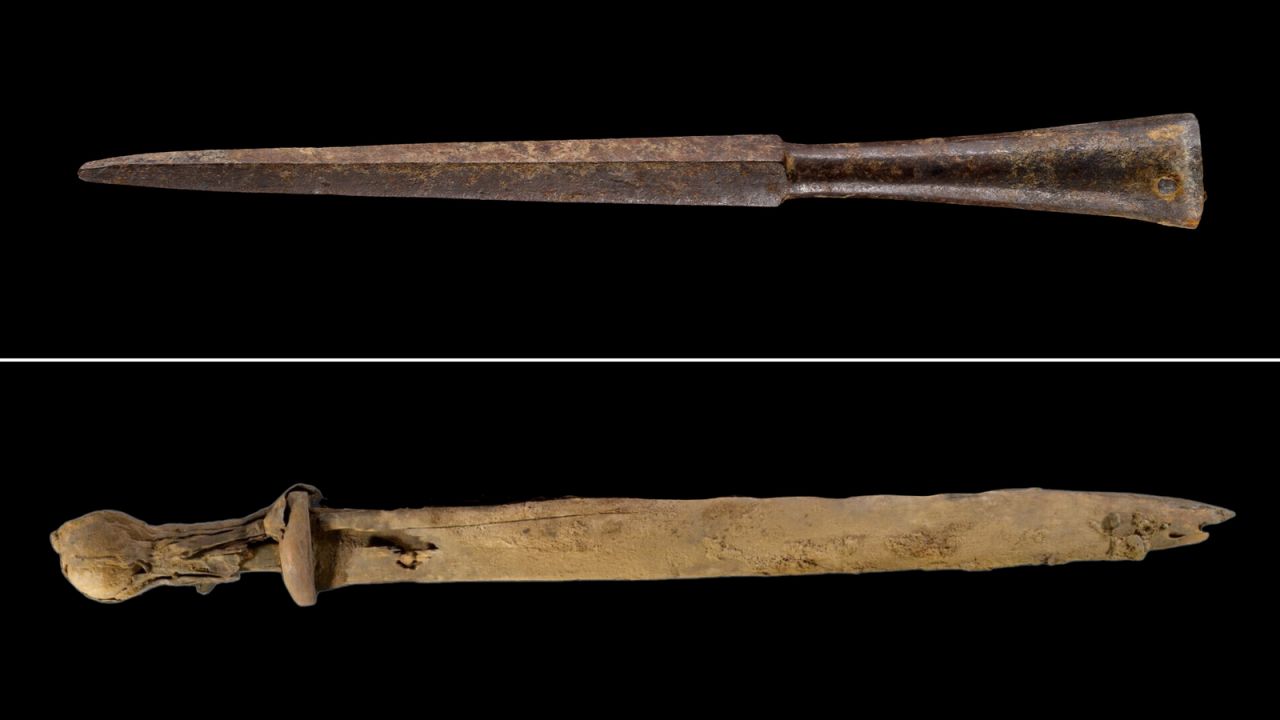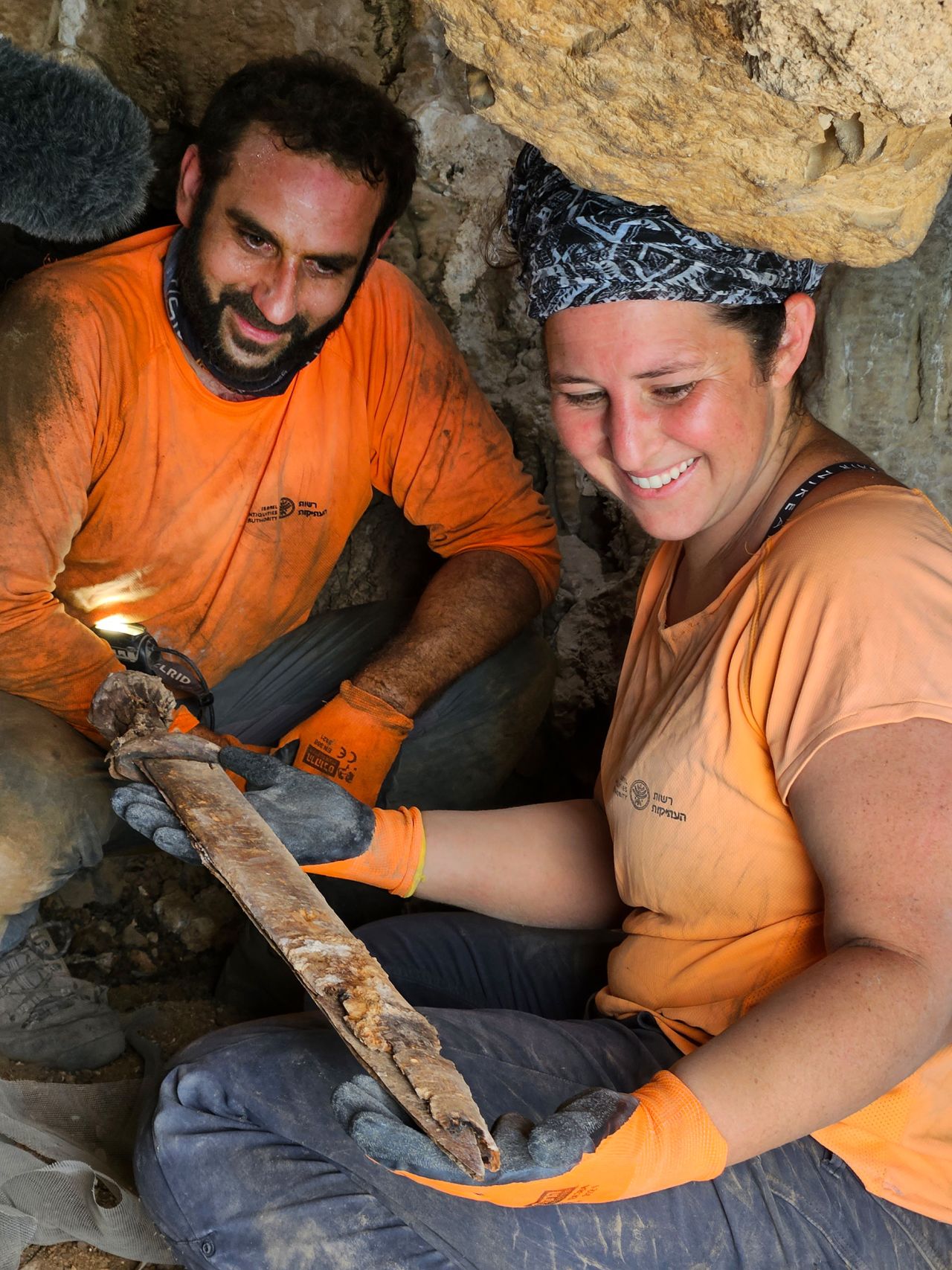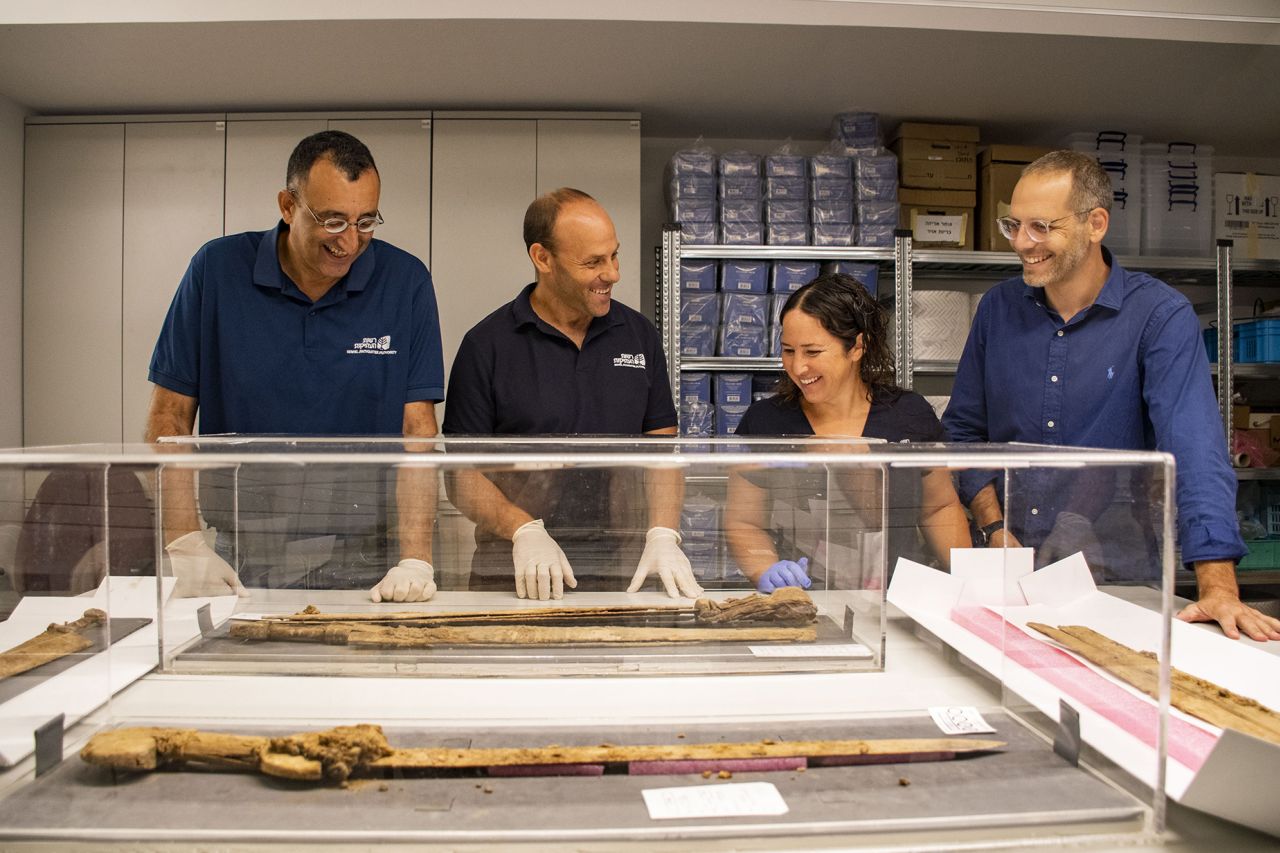Four 1,900-year-old Roman swords found in cave in Israel

Sign up for CNN’s Wonder Theory science newsletter. Explore the universe with news on fascinating discoveries, scientific advancements and more.
Archaeologists have found four Roman swords and a shafted weapon known as a pilum dating from 1,900 years ago in a cave near the shore of the Dead Sea in Israel.
The rare cache of weapons was found in the En Gedi Nature Reserve, preserved in wooden and leather scabbards, according to a press statement from the Israel Antiquities Authority published Wednesday.

“Finding a single sword is rare—so four? It’s a dream! We rubbed our eyes to believe it,” the researchers said.
The weapons were probably war booty taken from the Roman army by Judean rebels, according to the authors of a research article published Wednesday in the book “New Studies in the Archaeology of the Judean Desert: Collected Papers.”
The first evidence—the pilum and pieces of worked wood that turned out to be scabbards—were found by chance in an isolated and inaccessible cave on cliffs by archaeologists studying a fragmentary ink inscription on a stalactite.

Further investigation revealed four swords “in an almost inaccessible crevice on the upper level of the cave,” the statement said.
The “exceptionally well preserved” swords were found alongside pieces of leather, wood and metal. Three of the swords had iron blades inside wooden scabbards and measured 60-65 centimeters (24-26 inches) in length. The fourth was 45 centimeters (18 inches) long.

“The hiding of the swords and the pilum in deep cracks in the isolated cave north of ‘En Gedi, hints that the weapons were taken as booty from Roman soldiers or from the battlefield, and purposely hidden by the Judean rebels for reuse,” said Eitan Klein, one of the directors of the Judean Desert Survey Project.
“Obviously, the rebels did not want to be caught by the Roman authorities carrying these weapons. We are just beginning the research on the cave and the weapon cache discovered in it, aiming to try to find out who owned the swords, and where, when, and by whom they were manufactured,” he added.
Further excavations uncovered a bronze “Bar Kokhba” coin dating from 132–135 CE, possibly dating the swords, according to the press release. At this time, the Bar Kokhba Revolt, also known as the Second Jewish Revolt, saw Jews rebel against Roman rule in the area.
“This is a dramatic and exciting discovery, touching on a specific moment in time. Not all are aware that the dry climatic conditions pertaining in the Judean Desert enable the preservation of artifacts that do not survive in other parts of the country,” Eli Escusido, director of the Israel Antiquities Authority, said in the statement. “This is a unique time capsule, whereby fragments of scrolls, coins from the Jewish Revolt, leather sandals, and now even swords in their scabbards, sharp as if they had only just been hidden away today.”
No comments:
Post a Comment